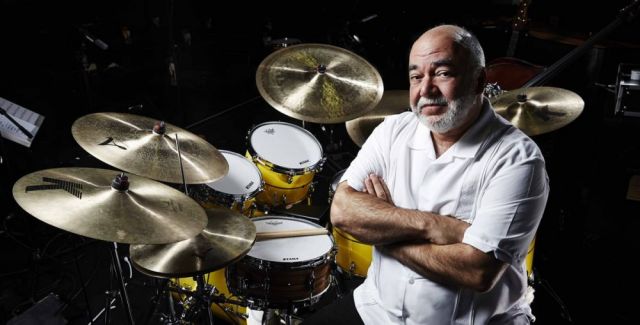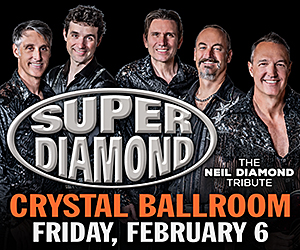Home > Home - Featured
12/06/2019
"The Musician's Lifeline- Advice for All Musicians, Student to Professional" - Peter Erskine and Dave Black / Book Review
By Michael "Shoehorn" Conley// The Musician's Lifeline- Advice for All Musicians, Student to Professional contributions from 150 + pros and master musicians by Peter Erskine and Dave Black. "This book is worth the asking price for the quotations alone and there is a wealth of very succinct and plainly-worded wisdom that can benefit musicians at various levels of professional involvement."
This book is an overview of industry practices and survival skills in a challenging field. It is based on responses to 7 questions the authors posed to themselves and a couple hundred of their peers in the industry.
- What's the best advice you've ever received?
- What's the best advice you've ever given?
- What's the one thing you'd have done differently in your studies/career?
- Best travel advice?
- Best sight-reading advice?
- Do you have any business advice for a musician?
- Any advice relating to people skills?
It's a pretty clever format and it makes for an easy, informative, and entertaining read- and let’s just say there’s a bit Tom Sawyer influence in getting your pals to do your work! Some of these players are quite famous and may be familiar names to readers.
Much of the content will not be new to experienced players with a decade or two under their belts, but there's a wealth of information for young musicians starting out and professionals who have gaps in their knowledge of touring, recording, publishing, etc. The book can be casually perused in small doses or read cover-to-cover while taking notes. The variety of typefaces make the quotes very accessible.
Many of the musicians offer similar advice on topics such as surviving on the road, practice habits, personal care, and social skills. Quite a few of them recommend joining the American Federation of Musicians. I've definitely seen saltier books about musicians however this book is actually refreshing for its lack of profanity and ribald humor.
There aren't a whole lot of horror stories in this book but one anecdote relevant to many of us in Portland is the advice to not leave one’s equipment in one's car. Erskine himself had a bunch of his gear stolen in a hotel parking lot where he had actually tipped the valet to keep an eye on the thing yet 20 minutes later his stuff was gone, with a broken window in his car .
There is practical advice about making the music come to life from the score, advice about phrasing and counting, and approaches to playing a more difficult piece of music. For example, Erskine himself writes “I approach all music by visualizing or hearing multiple layers of time- much like a three-dimensional chess board- incorporating: 1. The primary pulse 2. The triplet subdivision 3.The vertical eighth note subdivision (straight 8s) 4. Double time.”
From there he goes on to explain that by applying this analysis he can pivot to any level of the time very smoothly, bringing his awareness of the music to a cellular level. Great stuff.
Some of his concepts involve an understanding of the psychology of visualization and a sophisticated, metaphorical way of thinking about music.
Also on the playing side, there's advice about not making the mistake of just packing your solos with a bunch of notes and thinking that's what playing modern means- actually there's a story to tell, and it's our job as musicians to get that across.
There's great advice about preparing for an audition or for a professional job interview.
Some of these tactics boil down to old-fashioned manners and courtesy, such as “Wait for the interviewer to take a seat first before sitting down”.
There's also advice about how to deal with performance anxiety- here's a quote I like: “There are less-extreme types of reaction to anxiety, and those may include a level of self-consciousness that prohibits the kind of unfettered creative response to what the musician is hearing as he or she performs.” In my own experience as a player, this is a really good thing to be aware of and overcome.
There are some paragraphs offering handy suggestions to keep in mind while speaking on mic and making announcements to the audience. Such as not telling the audience “how beautiful a piece of music is that you're about to play- they'll hear if it's beautiful or not”. That's hilarious, and good advice!
Section 5 is about maintaining a healthy lifestyle, from dealing with tinnitus and using earplugs to staying healthy on the road, suggesting exercise, moderate partying, and relaxation techniques. Also, get as much sleep as you can, maintain relationships, and explore cities that you're touring on foot just to get a sense of where you are.
Section 6, The Business of Music, starts off with the art of networking, which is a very valuable thing, as in any field. They go on to list music organizations that are beneficial for musicians to be members of, and very first on the list is American Federation of Musicians. Full disclosure: this writer is a member of AFM Local 99 and also Broadcast Music Incorporated or BMI.
The authors discuss some of the ins and outs of negotiating fees, social media, attending conventions, publishing, and self-promotion, and they include the phrase “don't be afraid to say no”. They also state that it is normal to sometimes be tired and not want to pick up your instrument, concluding this paragraph with “life is short, have fun”.
There are other nuts-and-bolts sections about music copyrights, which can be confusing if you haven't looked into it. Anyone with serious interest in some of these business topics will want to do further research beyond the purview of this book. The field is constantly struggling to keep abreast of the changes that technology has forced upon the industry.
A lot of the advice given by the pros here is just common sense.
Another bit of business advice that may seem counterintuitive to some players is this one from Tim Ishii and that goes “Report everything (income) to the IRS, keep track of everything (mileage, receipts, and business-related expenses) They add up and you'll feel better if you do” Regarding sound advice, in Section 7 they write “PA companies and sound mixers have taken over control of our ability to hear and play with dynamics. The advent of the subwoofer has only made a bad problem WAY worse. A bass drum should sound like a bass drum, not like a Howitzer cannon inside your kitchen. Too much low-end is destroying the feel of the music. As Funkmaster Maceo Parker was heard saying to the soundman at a recent Festival in Europe during his band soundcheck ‘the funk is not in the low end’.”
Wow! That's a very interesting observation to hear from a guy like Peter Erskine, who has had a storied career with the likes of Weather Report, playing major festival stages and concert halls.
There's advice about how to deal with a difficult bandmate or producer, and another section of quotes on people skills. Here's one from our local bass man, and nephew of the author, Damian Erskine “Be a good hang. Be respectful and allow people their quirks. Also, be aware of how your actions affect those around you. Be mindful of the shared space on the road.” That's pretty good advice in any business. And here's a good one from drummer and producer Terri Lyne Carrington “The Four Agreements- Don't take anything personally, don't make assumptions, always do your best, and be impeccable with your word.” Again something that will help you in any business.
There are sections on being a teacher, creating a music industry resume, and what one should emphasize in such a resume, as well as advice about college. In answering the question “Is a college degree still valuable?” Dave Black writes “Many skills you acquire while earning a degree will be useful in other fields outside music. And because many musicians typically combine multiple jobs with multiple income streams to support themselves and their families, a college degree can be most beneficial.”
I think this book is worth the asking price for the quotations alone and there is a wealth of very succinct and plainly-worded wisdom that can benefit musicians at various levels of professional involvement.
One more quotation from the back page, from jazz sax great Coleman Hawkins, who was not involved in the survey: “If you don’t make mistakes, you aren’t really trying.”








